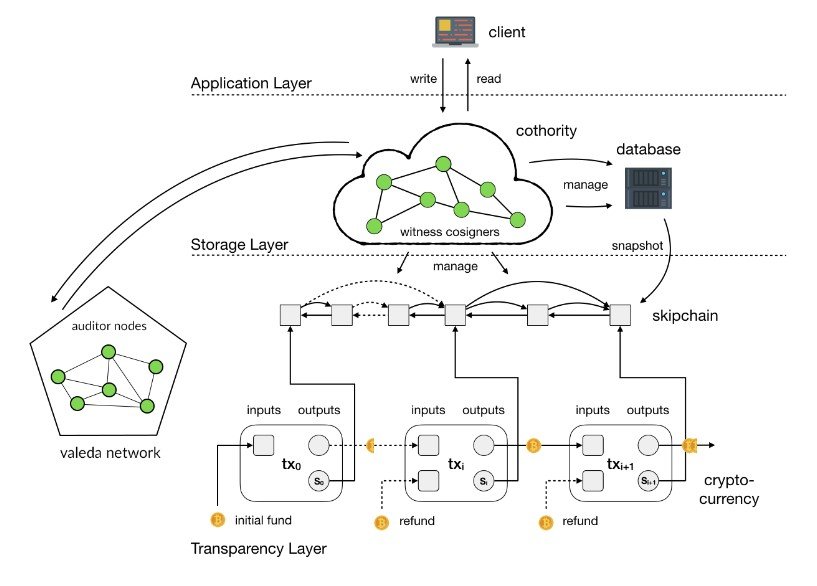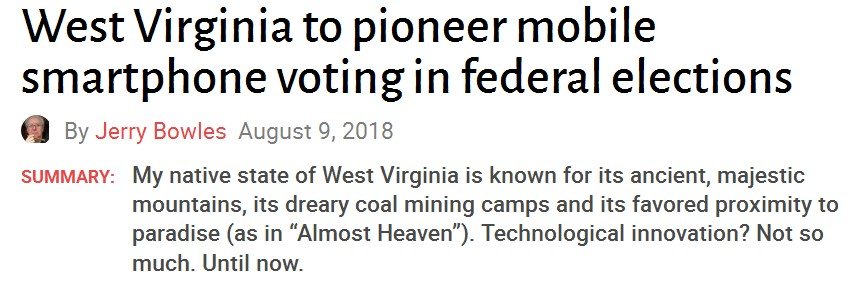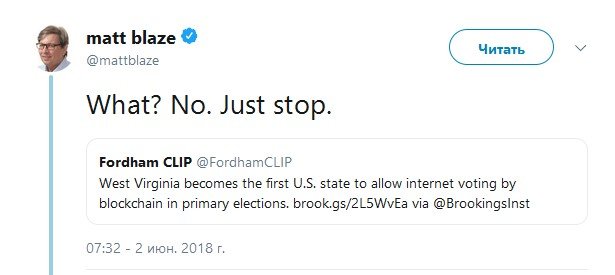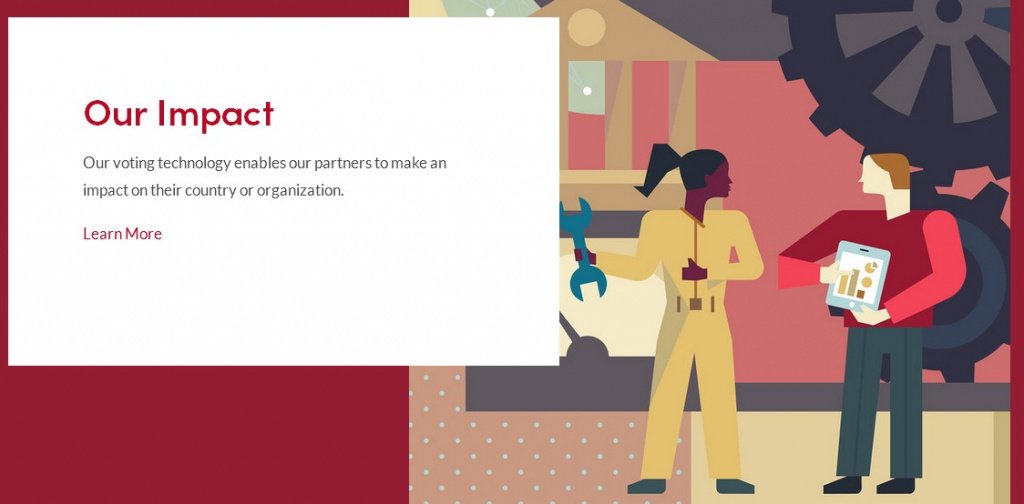Blockchain For Democracy

Blockchain projects and Bitcoin have the very same classical advantages: transparency of transaction records, reliable data saving and absence of the trusted third parties. There is an important addition to all that has been said: unlike many other areas, it’s not necessary to provide long, complex and obscure proof of the need for change to the audience. Traditional voting systems need new technologies today, thanks to which they will be able to meet the modern level of development of society.
Therefore, the success and failures here should be monitored a little more closely. This is a test that the entire industry takes: for adequacy, for flexibility, for the ability to take into account the requirements of regulators, without losing the most important features.
The basic element of democracy
The purpose of voting is usually not only direct consideration of the views of members of society, but also confirmation (or creation) of the legitimacy of the governing bodies and individuals to manage this society. In other words, in a democratic system, voting creates a kind of magnetic field – energy that holds all public institutions together in working condition.
Need for changes
The society votes and gives power to its representatives, who, on the basis of the counting of votes, are authorized and entitled to act on behalf of all its members. That is why a voting system which is inviolable, transparent in execution, accessible for comprehensive control, is so essential for modern state and public institutions.
Startups for democracy
Today there is no shortage of projects offering their own voting system on the blockchain. Here are the most famous ones: Ioex, Followmyvote, Democracyos, Polys, Democracy.earth, Votewatcher, Stemapp, Votosocial, Agora, Votem, Voatz. Many of them can brag about cases of real use of their developments both in local, small communities, and at the level of individual regions and even states.
The society needs new voting systems, but it is jealous of newcomers trying to change something in traditional ones as this issue is very painful. Therefore, almost each of the cases of participation of blockchain projects in elections (voting) finds its believers and opponents.
Voatz is blockchain in the black box

The state authorities from West Virginia, USA, decided that in 24 out of 55 districts, citizens (military and their families) will be given the opportunity to vote using a mobile phone, or rather a smartphone. As a result, 150 people used a special application developed by Voatz.

Matt BLAZE, a security systems specialist, believes that it is necessary to immediately stop all these dubious experiences with the blockchain in such an important matter as the elections in the United States. His arguments: new technology brings new challenges; there may be problems that have not yet been studied. There are simpler and safer ways to modernize voting systems.
Voatz solutions are designed exclusively for mobile voting. Developers completely rely on the security and safety of selected models of smartphones (Apple devices ranging from iPhone 5s and Android from 2016 and later).
For authorization and user identification, the phone uses biometric functions: face recognition, fingerprint, and passport or driving license scanning. In the future, the system creates a token, links it with the identified owner and, using the server system, records the voice.
The basis of Voatz technology is a permissioned blockchain created on the Hyperledger platform. The developed solution is fully enclosed and proprietary. The company doesn’t open source codes on GitHub, does not describe technical details, and involves independent experts for security audits.
FollowMyVote: Joseph Stalin recommends to count better
Visitors of the website FollowMyVote will see this quote on the main page:

This quote should demonstrate the importance of a good voting system, scare the user a little and keep him interested in fight for his voting rights. Unfortunately, the quotation is doubtful. In addition, it shifts the focus away: blockchain systems are not only good at the final vote count, but also, they allow them to be recorded and stored in a structure that is easy to verify and difficult to replace.
FollowMyVote offers a solution for Internet voting, which can be used with almost any user device connected to the network: with a mobile phone, desktop computer, laptop, tablet. The voter downloads the application (a virtual polling booth) and goes through the verification process with the help of a third party – an online verifier, who having received the user's personal data, "issues" a token to it. This token is the right to vote in the FollowMyVote system.
For data storage, developers use the Bitshares project blockchain. Comparing this decision with Ethereum and Bitcoin, they explain their choice: Bitcoin was born as a project of future digital money, its subsequent development led to a change in the initial characteristics and now raises many concerns. Security, productivity and economic efficiency of Ethereum also raise issues, and FollowMyVote believes that using Proof of Work is a threat to the blockchain's decentralized nature.
Agora: Ancient Greek traditions coming from Switzerland
Swiss blockchain project Agora is an ecosystem for online voting using any digital devices. The basis of the company's technology is a blockchain of its own design called Bulletin Board, created using the Skipchain architecture, and the mechanism of equal nodes of the network.

The voting system of Agora is several layers interacting with each other, providing work with users, recording their votes, auditing the system, synchronizing with the blockchain of Bitcoin.
There are two types of nodes in the Agora network. Some of them are designed to complete transactions and implement consensus, and the second ones are to verify the results of voting and audit of the first. The launch and maintenance of nodes is the right of participants who own native platform tokens, which are called VOTE.

Another type of tokens circulates in the system. These tokens are intended solely for voting, and they are received only by voters. Economy (tokenomics) of the project: state bodies or administration of private organizations pay Agora money for using the system during voting, and after this process is over, profits are distributed among the owners of nodes in VOTE tokens.
The score is still even
It seems that the opponents and supporters of blockchain solutions in voting still have the even score. For example, Voatz had to meet with the decisive onslaught of critics during the test of its system in the US state of West Virginia. But it could not stop its progress.
Why blockchains don’t solve the voting problem. Part 1/833837
— Matthew Green (@matthew_d_green) 28 августа 2018 г.
Large-scale voting requires a number of complicated properties. People need to be assured that their vote will be accurately recorded and counted. But votes also have to remain secret.
Denver authorities have joined West Virginia wanting to use the company's system. Voatz successfully closes the round by round of investing. Other companies also don’t sit around and increase the number of successful examples of the use of their systems.
Obviously, the future will not be so bright. In the process of confrontation, many of the skeptics expressed their just claims against online voting systems using the blockchain.
Reasonable objections to proprietary software are expressed by those who believe that voting systems should be developed solely according to open source standards. This will allow all interested parties to verify the reliability and safety of systems. We’d like to think that all the difficulties that blockchain companies are facing now are solvable, and the opposition will only help to improve the technologies, making them as convenient, safe and fast as possible.
Image courtesy of GCN.com